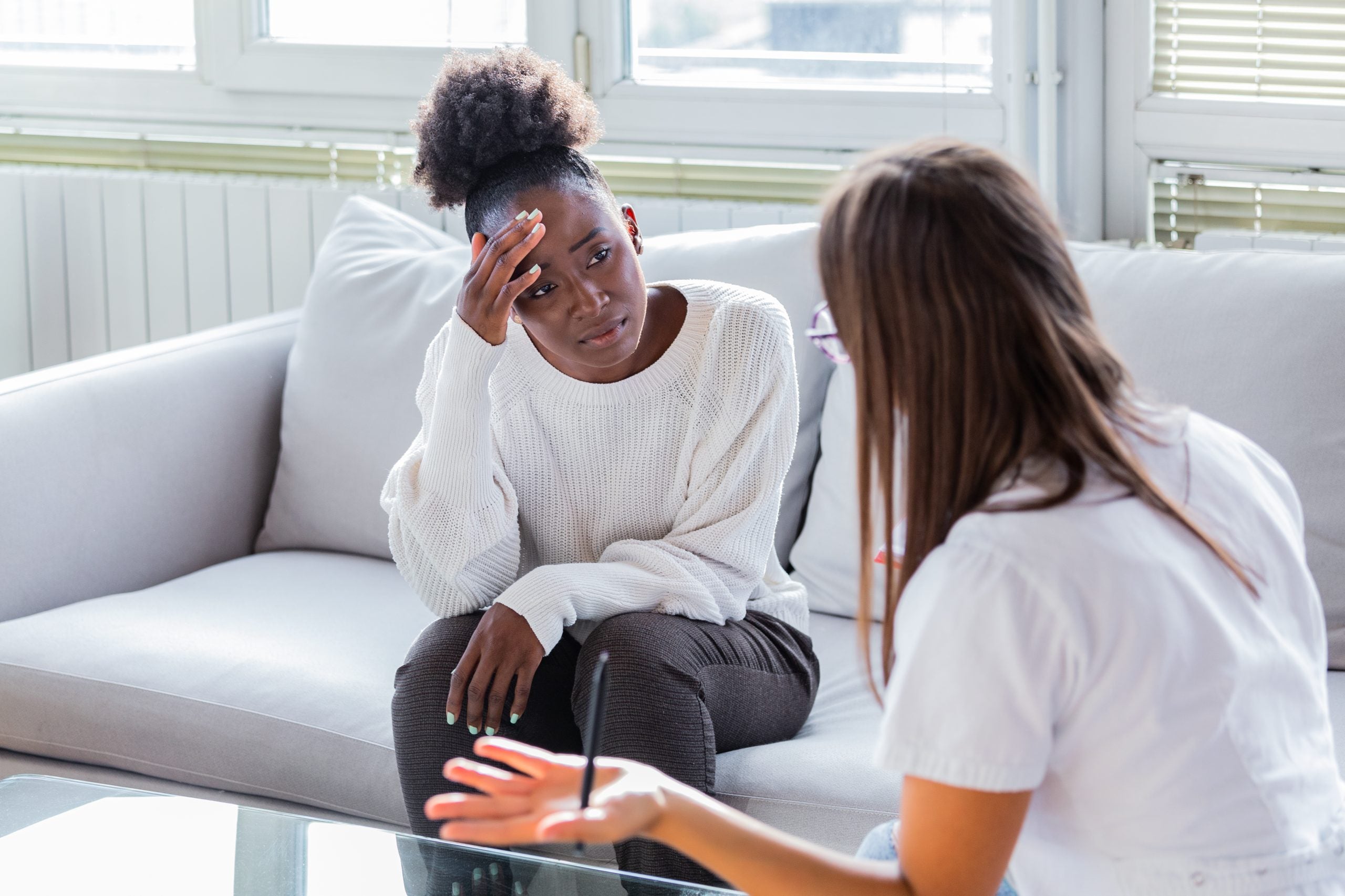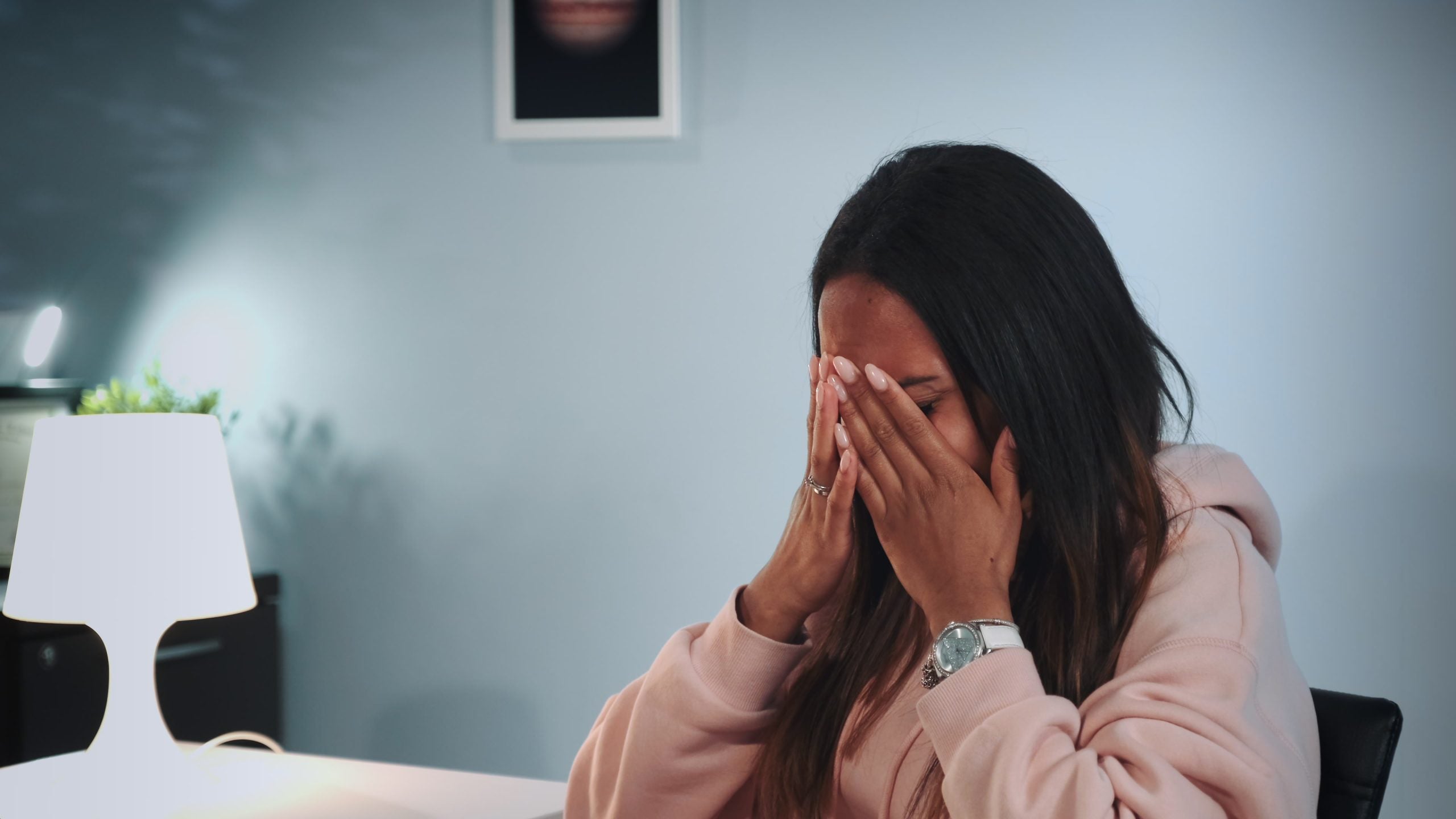Getting your Trinity Audio player ready…
Ok, so you’ve committed to prioritizing your mental health. But now what?
As many of us in this same situation know, taking those crucial first steps to actually put a plan into action to better manage your mental health can be a little confusing. During ESSENCE Wellness House: You Are What You Think, Dr. Joy Harden Bradford, Dr. Riana Elyse Anderson and Dr. Karinn Glover joined us to break down some of the steps we should take to begin formulating an approach to mental health management that’s just for us.
Keep scrolling below for a look at 9 steps the ladies shared and then check out the video above to watch the full conversation. For more of everything you missed at ESSENCE Wellness House: You Are What You Think, click HERE.
01
Assess Your Baseline Functioning
“If you know that you haven’t slept well in the past few weeks. If you know that you’ve got that little stress bubble over your head. If you know that you’re getting irritated when you do things that are quite normal for you, or you’re feeling the blues more than normal. If you know that something’s a little off from your baseline—or normal functioning—it might be time to figure out whether or not some help from someone would be useful.” – Dr. Riana Elyse Anderson
02
Pay Attention To How Your Major Life Changes Are Impacting Your Mental Health
“Another thing to think about is when people are going through major life changes. From something as joyful as pregnancy, to something as difficult as cancer or liver problems or a stroke because, psychiatrists are often at the intersection of medical issues and mental health. And we know that the mind and the body are one.” Dr. Karinn Glover
03
You Don’t Have To Wait Until Things Are At Their Worst To Create A Plan
“Who couldn’t use some additional support right now? I think that’s one of the really beautiful things about therapy in particular is that, there doesn’t necessarily need to be a crisis or anything happening. We can go just because we feel like we need some additional support or something feels a little off.” – Dr. Joy Harden Bradford
04
Don’t Compare The State Of Your Own Mental Health To That Of Others
“Even if [the way you’re operating] is relatively “normal” comparative to what your friends or family or colleagues around you are doing, it may not be for you. It may not be where you want to be, it may not be your optimal level of functioning. So even if everyone else is doing it at this time and it seems to be normal, this is the time to actually say, ‘I’ve been impacted in a way that I don’t like, I don’t feel good, and I want to get some support for that.” – Dr. Riana Elyse Anderson
05
Realize That Treating Mental Health Issues May Be Difficult & Uncomfortable At First
“Therapy can be challenging. So, just because it’s tough, doesn’t mean you have to leave. Sometimes we gotta go through some dark space to get to that light on the other side. That means pulling up stuff from our past, that means navigating new tunnels, which can be arduous and difficult. But it’s a part of our growth, it’s a part of that process.” – Dr. Riana Elyse Anderson
06
Learn The Difference Between A Therapist And A Psychiatrist
“Psychiatrists often work very closely with therapists. Psychiatrists are really the people who are looking out for when people are suicidal, or when they need to be hospitalized because perhaps, the person is hearing things nobody else can hear or seeing things nobody else can see. And then from there, if a person has picked up substance use, or if their substance use is escalating, that’s also a reason to think about seeing a medical professional.” – Dr. Karinn Glover
07
Know That Therapy May Be Helping Even If You Can’t See It Yet
“Sometimes, when you’ve been holding on to stuff for some time, it can be really painful to finally talk about those things. So, in the beginning, therapy may actually feel a little difficult and uncomfortable. But that doesn’t mean it’s not working, it just means that you are just kind of in this growth process.” –Dr. Joy Harden Bradford
08
Talk To Your Mental Health Professional To Determine Whether Medication Is Necessary
“[As a doctor], I often think in terms of, what are this person’s co-morbidities, meaning, what other diseases, what other health states, are they dealing with? And I also think about what’s going on in their life. So, if they don’t have may challenges in their day-to-day living and they’re managing to meet all of their commitments to their loved ones and to their job, then I don’t really feel like medication is as urgent. And, if anything, we all know pills don’t teach skills.” –Dr. Karinn Glover
09
Communicate With Your Therapist If You Feel Their Methods Aren’t Working For You
“Your relationship with your therapist is just that, it’s a relationship. So, if you’re going into a space where you don’t feel good, or you don’t feel like your outcomes are the way that you would want them to be and you’re not seeing growth, per se, over a certain amount of time, that could be a sign that that relationship is not suited for you, and it’s ok to find someone else. But, what I would really recommend is that you don’t say, “Oh, therapy as a whole is [now] something I don’t want.” – Dr. Riana Elyse Anderson








